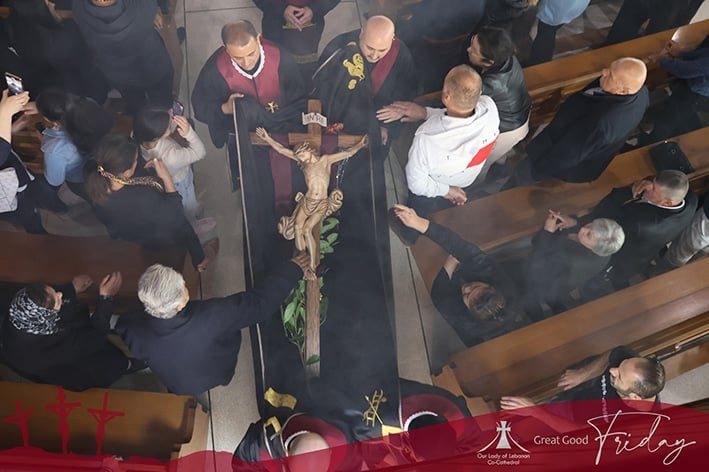
By George Al-Akiki
There is something about an early morning Maronite Liturgy during the week that makes sense. By all means, it shouldn’t be that way.
I’m up before the crack of dawn to brave the cold as I wait for the icy glaze to defrost from my car, hoping that I make it on time as being even two minutes late means missing half the Liturgy.
I can’t forget my Book of Offering (Missal), otherwise I won’t understand half the Arabic (that I regretfully did not learn as a child), and I pray that the priest mentions in English the anaphora or its page number, so I know where to continue following the Liturgy.
An awful number of things need to go my way. Yet the daily reminder of God’s love and his promise of salvation sets me up for the day better than any blend of coffee could.
This promise has been one of the most difficult things to correctly understand and remember throughout my entire life. Its misconception has played its part in the decline of the presence of Catholicism and has visibly trickled its way into the entrenched Maronite culture found in proud and passionate Lebanese Australians.
The influx of participants is so overwhelming at Maronite Parishes across Sydney during Good Friday, for example, that it is necessary for churches to partially close surrounding streets, require traffic control, organise first aid responders and other volunteers.
Only a week later, those numbers seemingly return to much lower figures as the annual wejbet (attendance due to sense of obligation) is complete.
The misconception that a life chosen to be lived in God’s love equates to being an easier life has played part in the process of recession from the church. That to be an apostle of Christ means to have unlocked the secret that will make life a constant parade of sunshine and rainbows, and at life’s end this filter of joy will peak with the salvation that promises entry into eternal life with God.
When that bubble bursts, as it so quickly does, it is easy to accuse God of failing to live up to his promise. It may be the death of a loved one, the monotony of daily work, or monetary stresses, amongst other things.
If God was truly present than he would fix the situation, right? From here, it is easy to become detached from Maronite identity by way of stubbornness (sometimes a Lebanese trait), when it feels like our prayers aren’t being answered; and problems arise when appropriating God’s love to mean receiving the graces of salvation on our own terms, a horrible misunderstanding of His promise.
Christ’s suffering and death on the cross was not intended to ensure sunshine and rainbows for every day of my life. As John 15:20 reveals, “A servant is not greater than his master. If they persecuted me, they will persecute you also.” Jesus, out of his great love endured pain, and so we are asked in this life to bear own pain to know truly the love of God.
This is the love that we ask to receive and offer in order to reach salvation. “Send us your life-giving Spirit from heaven to hover over this offering, to make it the life-giving Body and Blood, and to pardon and sanctify us” (Anaphora of the 12 Apostles, Maronite Divine Liturgy). It is not a handout, rather a gift that we work for each day, expressed plainly in the Liturgy. When someone asks me what it means to be Maronite, the simplest explanation I can offer is that it is the opportunity to pick up your cross and carry it alongside Christ.
I do not open my eyes each morning immediately feeling the graces of God, I do not fly out of bed with wings proclaiming my happiness. No, my mornings are groggy and tiresome, as most of ours are.
Each day we face hard experiences. However, I make it my mission to seek him out as early as possible in the Maronite Liturgy, setting up my day to know that whatever I may encounter, it is encountered with the knowledge that ultimately, I am loved and am saved.
George Al-Akiki is a parishioner at Our Lady of Lebanon Co-Cathedral in Harris Park and is a recent graduate of a Bachelor of Media (Communication and Journalism) from UNSW
